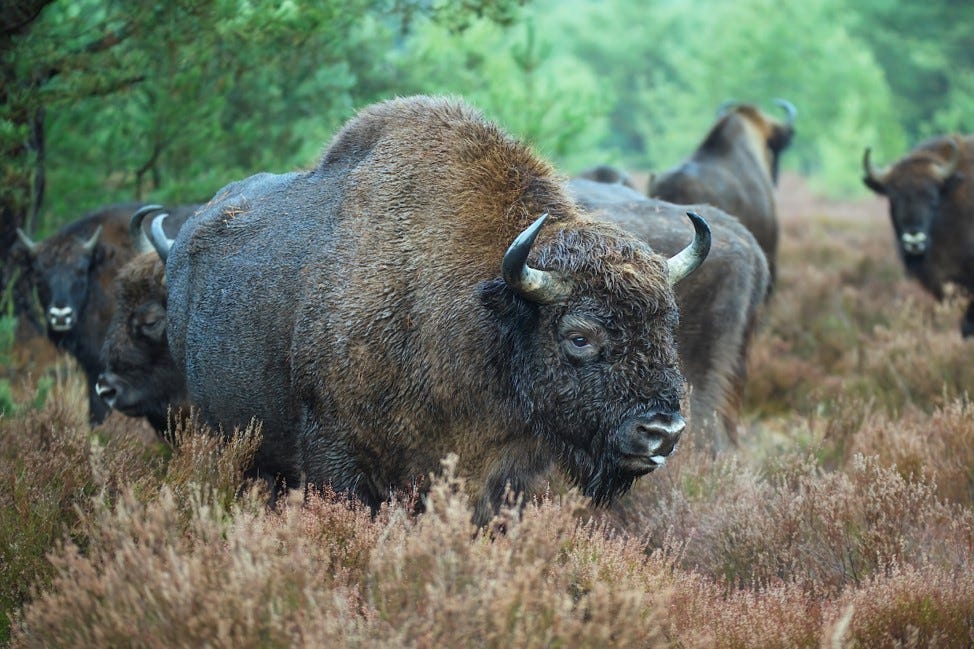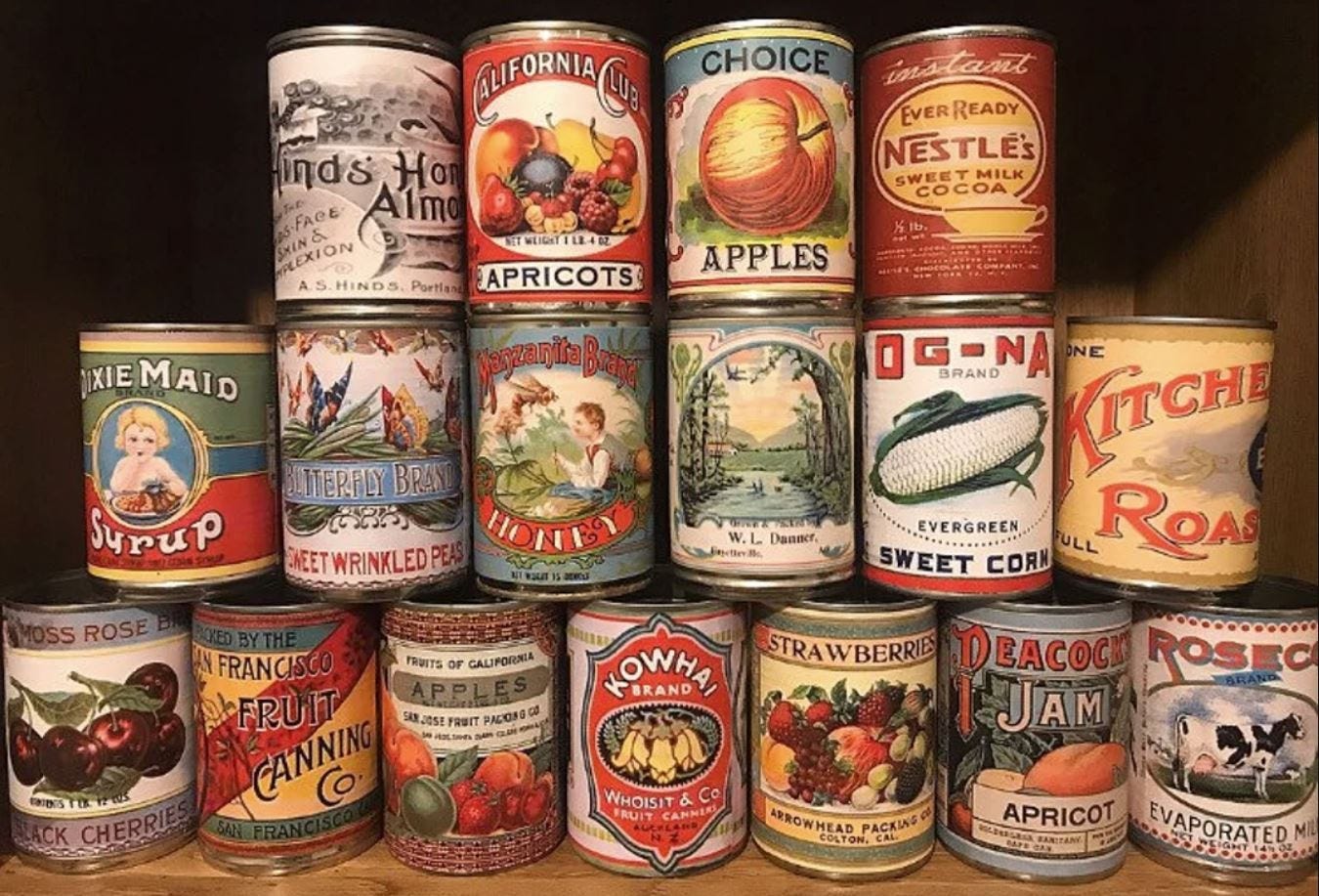I realize that this is challenging. The term is used everywhere and, for the most part, no doubt well-intentioned. But whether you look at it etymologically, historically or logically, the term 'conservation' nowhere near describes what is happening - and what needs to continue to happen for many, many decades to come. And so I think the term 'conservation' needs to go. Let me explain:
A few basic current definitions
One basic definition of conservation is the 'prevention of wasteful use of a resource.' Another is a 'careful preservation and protection of something.' Conservation is the 'act of conserving; prevention of injury, decay, waste, or loss.' In physics, conservation describes 'the principle by which the total value of a physical quantity or parameter (such as energy, mass, linear or angular momentum) remains constant in a system which is not subject to external influence.'
None of the above particularly inspires with regard to nature, right? Trust me, it gets worse.
The origin of the word
Etymology shows us that the term comes from the Latin conservare (con = together and servare = to keep - i.e. keep together, aka to preserve). Old French gave us conserver and late Middle English conserve.
Now that you know the above, it might not come come as a great surprise that there's a connection between tin cans ans conservation. After all, what's in a tin can stays preserved for a long time. In German, the word made itself at home just like that, a tin can is a 'Konservendose' or a 'Konserve' for short. And mind you, the French didn't forget about that origin either, there a tin can is called a 'boîte de conserve.'
The term conservation, in the sense of 'preservation of existing conditions in any sense' goes back to the mid 15th century. The word has been used since the late 15th century in reference to English municipal authorities who had charge of rivers, sewers, forests, fisheries, etc. Specifically with reference to preservation of nature and wild places by 1909.
A conservationist is 'an advocate of conservation' - a term that has been used in the ecological sense since 1903. According to the Oxford English Dictionary the term conservationism is even more recent - its earliest known use goes back to the 1910s.
History of conservationism
The idea of nature conservation goes back to earlier times when the industrial revolution and then the Napoleonic Wars made some smart minds realize that trees are not an infinite resource. Forestry methods were developed and conservation rules enacted. But all of that was purely about trees as an economic means to an end. That was conservation then. Forest management remained pretty much the sole focus in later years, be it in the 19th century in India, or even in the early 20th century in the U.S.
In that time, the time when Teddy Roosevelt would forever put his mark on conservationism, there was a fight between those who pretty much said anything should go (captains of industry, of course), then the conservationists (Roosevelt, Pinchot, etc.) who believed that nature needed to be preserved so that there would always be enough of it for man to harvest, and finally there were the preservationists, led by John Muir, who argued that nature needed to be preserved for its own sake (not as a forever source of economic production).
Well, Teddy won. He established the United States Forest Service, created national parks, bird and game preserves (oh how he loved his hunting) and one hundred and fifty national forests. Roosevelt and Muir knew each other - but in the end Roosevelt wanted a balance between what needed conserving, and what the economy needed. With the example of forests it was formulated like this: "to make the forest produce the largest amount of whatever crop or service will be most useful, and keep on producing it for generation after generation of men and trees."
The ideal of John Muir
John Muir's idea of preservationism was suitable for what life and country were back then. There truly still were pristine lands, by and large untouched and unspoiled. But today there are only the rare few places in the world that have not been degraded (if not devastated) by human industry. Today even the notion of preserving the status quo is ludicrous - what is needed is not conservation, and not preservation - what is needed is restoration.
We know that restoration efforts are taking place around the world at increasing scales - and yet we continue to use the term conservation, conservationist and conservationism. We should stop that. Conservation, as you have seen, means something very, very different from what the ongoing global recovery, rewilding and restoration efforts are all about.
Convivial conservation
There's a fairly new entry in the field of terminologies, this one is 'convivial conservation' - I like the core tenet, namely that it "draws on social movements and concepts like environmental justice and structural change to create a post-capitalist approach to conservation. Convivial conservation rejects both human-nature dichotomies and capitalistic political economies. Built on a politics of equity, structural change and environmental justice, convivial conservation is considered a radical theory as it focuses on the structural political-economy of modern nation states and the need to create structural change."
Alas, the term conservation has remained, and understandably so - it is so very, very sticky. It's been used for so long and certainly, in the minds of people, stands for the right thing. But it just is not. Remember the tin can? Conserving means keeping as is and conserving, or even preserving (preservatives, anyone?) are entirely wrong for where we are on this planet at this time.
The shifting baseline syndrome
You may think that nature around you is just perfect and that all that's needed it to keep it exactly as is, you know, to tin can it. But if that's what you think, then chances are that you've fallen victim to the shifting baseline syndrome. What we see around us is most likely (with a near 100% likelihood) nowhere near as healthy, as biodiversity-rich nature as it should be, as it once has been - and as it can be again.
So there you have it. Most likely, if you are engaged in nature work, you are not conserving - you are helping flora and fauna in some place of land or water to recover after that place has been degraded over the course of decades or even centuries.
There's no point in either conserving or preserving something that is in a degraded state - it needs to be restored. So my friends, no, you are not conservationists - you are restorers, you are rewilders!
PS: And maybe, in future times when we've succeeded to a degree worthy of E. O. Wilson's Half-Earth vision, well then, by all means, then we can start preserving again (as for conserving, I'd keep that tin-can term retired forever).
Cheers,
If you enjoy the Rewilder Weekly …
… please consider supporting my work. Your paid subscription will help generate the funds needed to realize a unique rewilding book I’m working on. And, of course, that paid subscription also ensures that the Rewilder Weekly will always keep going for those who cannot afford to pay. A thousand thanks!









